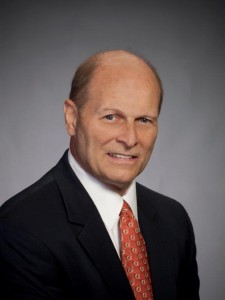By R. Joseph Leibovich
(901) 328-8269
We all know the story by now. The girlfriend of Los Angeles Clippers owner Donald Sterling recorded a conversation with Sterling in which he made racist comments.
The recording somehow made its way to the public, igniting outrage from players and the public. Three days later, NBA Commissioner Adam Silver announced that Sterling is banned for life from the NBA, that he must pay $2.5 million in fines and that Silver will take steps to force Sterling to sell his stake in the Clippers.
This whirlwind drama has led people to ask a lot of legal questions. Let’s take a look at some of the interesting ones.
I. Did the NBA violate Sterling’s First Amendment rights?
In short, the answer is no.
Public figures have routinely been smacked for making ill advised comments over the years. And, every time a Paula Deen, a Phil Robertson, or a Donald Sterling are dealt consequences for their comments, a lot of people argue that their right to free speech has been abridged.
The First Amendment states that “Congress shall make no law respecting an establishment of religion, or prohibiting the free exercise thereof; or abridging the freedom of speech, or of the press; or the right of the people peaceably to assemble, and to petition the Government for a redress of grievances.”
The First Amendment applies to federal and state governments. (There’s an explanation of how the First Amendment can apply to states. I don’t want to get into the whole thing here, but, trust me, it’s been incorporated to include state governments). But, the First Amendment does not apply to private entities, such as the Food Network, A&E or the NBA.
So, there’s no First Amendment issue here. Move along.
II. How Can the NBA Get Rid Of An Owner?
Well, this is an interesting question.
Until the Sterling brouhaha emerged, the NBA had managed to keep its Constitution and By-Laws “secret”. However, the League has since released the document to the public. It’s 79 pages long, and I’m not going to pretend to have read the whole thing. If you want to, knock yourself out. Here it is. http://mediacentral.nba.com/media/mediacentral/NBA-Constitution-and-By-Laws.pdf
Relevant to the Sterling situation is Article 13, titled, appropriately enough, “Termination of Ownership or Membership”. This Article sets out a number of reasons the League (called “the Association” in the document) can terminate ownership interests. It appears that the NBA will rely on this in its efforts to get Sterling to divest:
The Membership of a Member or the interest of any Owner may be terminated by a vote of three fourths (3/4) of the Board of Governors if the Member or Owner shall do or suffer any of the following:
…
(d) Fail or refuse to fulfill its contractual obligations to the Association, its Members, Players, or any other third party in such a way as to affect the Association or its Members adversely.
So, if Sterling breached a contract with the League, then there’d be grounds to terminate his ownership interest. And the League has taken the position that is the case.
But, what contractual obligations has Sterling violated? ESPN is reporting that when Sterling bought the Clippers in 1981, he signed some documents that include a “morals clause” and a clause indicating that owners will not take any position that could materially adversely affect a team or the League. Presumably the NBA will say that Sterling’s comments fall into this category, and, therefore he violated his contract with the NBA.
Is this argument a slam dunk? (Sorry, but one basketball metaphor was inevitable). Probably not.
Sterling will likely claim that a private conversation with his mistress should not be deemed to be him “taking a position”. It was not a public declaration, after all. Will this argument carry the day if this matter gets to court? That is difficult, if not impossible, to say. But, if the parties decide this matter is to be determined through litigation, we can expect a serious fight.
III. Does Sterling Expose The Clippers To Discrimination Claims?
For the sake of this discussion, let’s assume Sterling is a racist. I am certainly not going to argue this fact one way or the other. The recording speaks for itself. Draw your own conclusions from it and give whatever weight you feel is appropriate to prior lawsuits against Sterling involving housing discrimination, and allegations of prior racist comments. But for purposes of this discussion, let’s assume racism.
If Donald Sterling is a racist, and if his employees know it, is that a problem?
Well, sure.
The Clippers organization includes several African-Americans and other minorities. The Clippers employ more people than the players on the court. Apart from the players and coaching staff, there’s marketing, ticket people, administration and so on. It’s a lot bigger of an organization than you see during a game.
What, if any, effect does having someone who is publicly deemed to be a racist have on a workplace?
Let’s take the obvious path first. If Sterling had not been banned, and were to walk up to Clippers coach Doc Rivers (who is African-American) and were to fire him for whatever reason, could Rivers allege he was terminated due to his race and file a claim under Title VII of the Civil Rights Act or state law? Sure he could.
And what would part of his proof be? It would include evidence that the guy who fired him had demonstrated racial animus, and that whatever reason he gave for the termination was a mere pretext for discrimination. Does this mean he’d win the case? Not necessarily. But it could give a court a basis for denying summary judgment. So, keeping Sterling on could have exposed the Clippers to extended litigation in the future.
But, let’s say that Sterling didn’t fire anyone. Let’s assume he has never said a racist word to any Clippers employees, and that he has never once made an employment decision that can be attributed to race. Could an employee somehow claim that Sterling has created a “hostile work environment” due to his private comments?
It seems highly unlikely.
In general, to establish a claim of a racially based hostile work environment, a plaintiff must show:
1. He or she is a member of a protected class;
2. He or she was subjected to unwelcome racial harassment;
3. The harassment was based on race.
4. The harassment unreasonably interfered with his or her work performance by creating an intimidating, hostile, or offensive work environment; and
5. The employer is liable.
Examining a workplace where you have someone deemed to be a known racist as an owner or supervisor, we have to ask could the mere fact that they are a racist expose an organization to liability or that fact alone? I think the answer is no.
As long as the individual leaves their racism at home and doesn’t spread those thoughts in a work setting, absent action, liability seems unlikely.
So, could a member of the Clippers organization who suffered no tangible job action sue the Clippers on the basis of a hostile work environment simply because Donald Sterling made racist comments privately to his paramour? Not likely.
But , is every employment decision Sterling made in relation to an African-American now subject to attack based on his comments? Possibly.
And, beyond the employment realm, has Sterling arguably violated Title II of the Civil Rights Act of 1964? That section prohibits discrimination on the basis of race in places of public accommodation. Did Sterling, by telling his girlfriend to not bring black people to games somehow violate Title II? Seems unlikely, but it’s certainly interesting to consider the argument.
The Sterling case provides a lot of fertile ground for legal debate.
But, beyond the legalities, the key take away here is that if you own a business or work in management, it’s probably a good idea to avoid spouting off racist comments, even privately. You never know who is recording you and when.
After all, if you can’t count on your mistress who is about a half century younger than you to be discreet, who can you trust?





